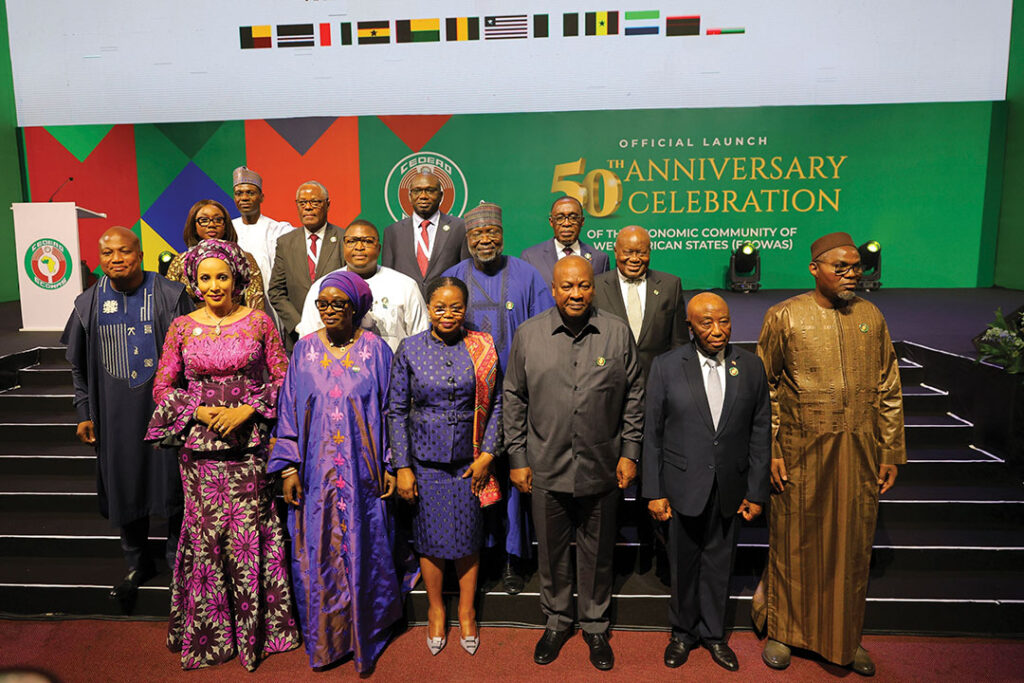The Economic Community of West African States has observed its 50th anniversary as one of the continent’s most successful economic blocs and a major force in regional cooperation and peacekeeping.
The community, known as ECOWAS, observed its anniversary in mid-2025. Sixteen member states established it in 1975.
Within three years of its founding, the bloc’s mandates were expanded to encompass political and security objectives. These additions were necessary as West African countries adapted to shifting socioeconomic and security challenges, which have come to include terrorism threats.
“We are confronting the greatest challenges we face today, terrorism, climate change and unconstitutional change of government, poverty and economic disparities,” ECOWAS Commission President Omar Alieu Touray said, as reported by Reuters. He expressed confidence in overcoming the challenges.
Military coups led to the withdrawal of Burkina Faso, Mali and Niger from the group in 2024. The three breakaway countries have formed the Alliance of Sahel States. ECOWAS has made overtures to the three countries since that time to get them to return. In mid-2025, ECOWAS representatives met in Ghana and began planning the relocation of several key institutions based in the three alliance countries, according to Business Insider Africa. ECOWAS officials said they had concerns relating to the free movement of people, goods and services within the alliance.
The stated goal of ECOWAS is to achieve “collective self-sufficiency” for its member states with a single large trade bloc. Its emphasis on peacekeeping includes equality and interdependence of member states, solidarity, nonaggression, promotion of human rights, economic and social justice, and democratic governance.
One particular success has been its Free Movement of Persons, Residences and Establishment Protocol, which gives citizens the right to enter and live in any member country’s territory. A second protocol aims to develop and integrate the tourist industry of each member country.
As a peacekeeping force in the region, member states have sent joint military forces to intervene in the bloc’s member countries at times of political instability and unrest. The first intervention came as a result of a civil war in Liberia in 1990. That initial 3,000-man contingent was formed with personnel drawn from The Gambia, Ghana, Guinea, Nigeria and Sierra Leone, with additional troops contributed by Mali.
Since that time, ECOWAS also has intervened in Côte d’Ivoire, The Gambia, Guinea-Bissau, Mali and Sierra Leone.

